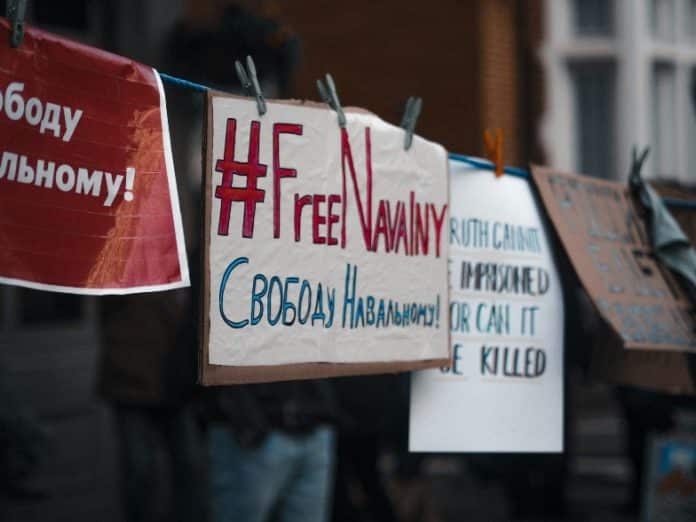United Nations Secretary-General António Guterres and the Office of the United Nations High Commissioner for Human Rights (OHCHR) reacted with emotion on Friday (16 February) to the news of the death in prison of Russian opposition figure Alexei Navalny.
“The Secretary-General is shocked by the reported death in detention of opposition figure Alexei Navalny,” his spokesperson Stéphane Dujarric said during a press briefing. “The Secretary-General expresses his condolences to Mr. Navalny’s family and calls for a full, credible and transparent investigation into the circumstances of Mr. Navalny’s reported death in custody.”
The UN Human Rights Office said it was “appalled” at the news and recalled that it had repeatedly raised “serious concerns relating to the charges against Navalny and his repeated detention which appeared to be arbitrary.”
“Last August, UN High Commissioner for Human Rights Volker Türk highlighted that the latest 19-year sentence raised questions about judicial harassment and instrumentalisation of the court system for political purposes in Russia and called for Navalny’s release,” said OHCHR spokesperson Liz Throssell in a statement.
Putting an end to persecutions
“If someone dies in the custody of the State, the presumption is that the State is responsible – a responsibility that can only be rebutted through an impartial, thorough and transparent investigation carried out by an independent body,” Ms. Throssell added, calling on Russia “to ensure such a credible investigation is carried out”.
The Office of the High Commissioner for Human Rights spokeswoman also called on Russia to end its persecution of opposition politicians, human rights defenders and journalists, among others.
“All those who are detained or have been sentenced to various terms of imprisonment for the legitimate exercise of their rights, including the right to freedom of peaceful assembly and expression, must be released immediately and all charges against them must be dropped,” she added.
Disappearance in December
In December, Mariana Katzarova, the UN Special Rapporteur on the situation of human rights in the Russian Federation, issued an alert expressing her “grave” concerns at Mr. Navalny’s enforced disappearance, when his whereabouts and state of health were unknown after more than 10 days.
Mr. Navalny was transferred at the end of December to the prison where he reportedly died.
The UN Special Rapporteur on Torture, Alice Edwards, said that several independent UN experts, including herself, had privately and publicly urged the Russian government to end the punitive conditions in which Mr Navalny was being held.
She said they had called for an investigation into credible allegations of torture against Mr. Navalny and informed the authorities of the essential need for him to receive medical care, particularly following his alleged poisoning in 2020.
“That our appeals to the Kremlin were ignored so blatantly and with such disregard for human life is a tragedy for Mr. Navalny, his family and supporters,” she said. “It is also a bleak day for the rule of law, free expression and human rights.”
